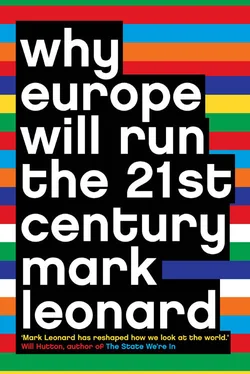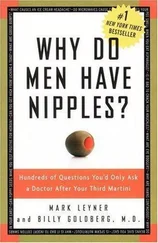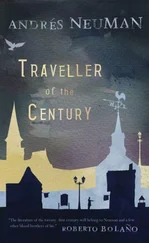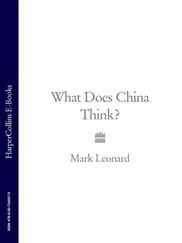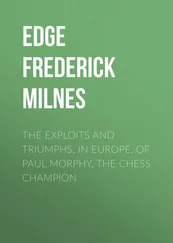This invisible Europeanization of power is happening across the spectrum of British politics. There is no longer a single national ministry that has not met with its counterparts in some EU forum or another, including defence ministers, transport ministers, and even home affairs ministers. The best estimates are that up to a third of British legislation and two-thirds of economic and social legislation are made by British ministers with their European colleagues in Brussels. 11
While Europe has seeped into the bloodstream of national politics, it is careful to take a back seat. It is the House of Commons, national civil servants, and national law courts that ratify and implement European decisions. Because national governments are the agents of European power, the European Commission can remain small and discreet. The European Commission has a total staff of 22,000 – less than many large city councils. This gives it barely half a civil servant per 10,000 citizens, as against 300 per 10,000 on average for the national civil services. 12 Some Eurosceptics have unfairly argued that Europe is a stealthy federalist project. In fact, every single step has been voluntary and has been debated and agreed by national parliaments. It is, however, deliberately low profile so that its builders focus on making policy work rather than political grandstanding.
The European Union is about enhancing rather than destroying national identities. Brussels, the antithesis of an imperial capital, is in many ways a microcosm of Europe, representing and encapsulating European history. Almost every invasion and political project – from the Roman Empire, through Napoleon to the Third Reich – has come through and absorbed it. And today its population, architecture, and ideology is a haphazard over-layering of their legacies. A third of its population is foreign 13 (with the rootless, well-paid elite of Eurocrats living side by side with the socially excluded immigrants of European empires past, Moroccans, Congolese, Rwandans). It is the capital of a country with no real sense of national identity (and a constant jockeying for position between the Walloons and Flemings who inhabit it).
The expat’s burden of carrying his home in his head means that there is no risk of going native. Few of the Eurocrats who move to Brussels even try to fit in. Many of the British cling to their roots by recreating a little England. Despite living in one of the culinary capitals of Europe, they fill their cupboards and fridges with pre-packaged, ready-made parcels of home: Bird’s custard powder, Walkers crisps, Heinz baked beans, Wall’s sausages, and Savlon cream. And this is nothing compared with the patriotic fervour of the Greeks, who kit themselves out in fancy dress and dance through the streets on their national holiday. Or the Irish, whose legendary St Patrick’s Day celebrations spill out of the dozens of Irish pubs that are scattered around the city. Brussels is an unobtrusive vessel that allows powerful national identities to flourish – the living embodiment of the British Conservative Party sound-bite of being ‘in Europe, not run by it’. By keeping a low profile at home and working through national structures, Europe has managed to spread its wings without attracting much hostility. As it becomes a force to be reckoned with on the world stage, it can act in the same way. When European troops go overseas they rarely wear European uniforms. They often serve under the flags of NATO or the United Nations. Where Europe has established protectorates, such as in Bosnia and Kosovo, its special representatives do so in the name of the United Nations as well as the European Union.
European power even has a low profile in the economic sphere. The EU economy is the same size as that of the USA, with comparable levels of capital investment in the economies of other countries, and yet that economic muscle – in many respects greater than that of the USA – just isn’t noticed in the same way. Anti-globalization is almost exclusively an anti-American phenomenon, even within the USA itself, when its antithesis, globalization, is just as much a European phenomenon. The intrusion of McDonald’s provokes the bile of economic nationalists and opponents of globalization everywhere. All of that movement’s hate figures – Starbucks, Gap, Nike – are universally identified as American companies. In some respects, the attack on the World Trade Center demonstrates this paradox – an attack on the heart of the global economy naturally took place in New York because American economic might is so blatant. Europe’s comparable might simply lacks that profile.
This even extends to America’s occasional fears of a foreign economic takeover within the USA. The 1980s saw remarkable levels of nail-biting and hand-wringing within the USA over the rise of Japan and its putative takeover of the commanding heights of the US economy. European investment in the USA now easily surpasses that of Japan, yet it barely merits a mention in American analysts’ dissections of European weakness.
The most obvious reason for Europe’s invisibility abroad is the dark episode of European colonial history that means there is a real reluctance in Europe to adopt the trappings of empire. But there is a deeper reason for this respect for local cultures. The European vision has never aimed to establish a single model of human progress: it is about allowing diverse and competing cultures to live together in peace. This was captured most dramatically when the Northern Irish politician John Hume was given the Nobel Peace Prize. In his acceptance speech he talked of the European Union as the most successful peace process in history: ‘The European visionaries demonstrated that difference is not a threat, difference is natural…The answer to difference is to respect it…The peoples of Europe created institutions which respected their diversity – a Council of Ministers, the European Commission and the European Parliament – but allowed them to work together in their common and substantial economic interest.’ 14
This diversity also has the unexpected effect of making the European Union stick to its principles. An example illustrates this well. When the Berlin Wall fell in 1989, there was no agreement on which former Communist countries to let into the club. Because Europe’s leaders failed to agree on the final borders of the European Union they decided to make entry open to anyone who met the ‘Copenhagen Criteria of democracy, the rule of law, and economic liberalism. Lurking in the background of this decision was a desire to exclude some countries. Several member-states were particularly keen to use the agreement to lift the bar of membership so high that Turkey would never be able to join, creating tough standards on human rights and respect for minorities that they felt would remain beyond the Kemalist republic’s reach. However, these very criteria have driven Turkey to reform itself, and they will pave the way for a modern and democratic Turkey to join (despite the lack of enthusiasm for Turkish membership from many EU members). The same happened with the Maastricht convergence criteria for monetary union – designed at least in part to keep the profligate Italians at bay – which had the effect of ending Italy’s profligacy and allowing it to join.
In all of these cases, member-states have struggled to agree on their final destination and taken refuge behind processes which reflect European values. Ironically, they have chosen to project their values to the European level in order to defend their interests at a national one. This creates a strange situation where nations have interests and no values and the EU has values but no interests.
Jean Monnet’s prediction at the outset of the European project was that, ‘We are starting a process of continuous reform which can shape tomorrow’s world more lastingly than the priciples of revolution so widespread outside the West.’ 15 But because the European project is at best half-glimpsed, hidden behind national legislatures and national executives, it is easy to miss. To the naked eye, power has not moved from the governments that remain the seat of legitimacy, and politics continues in the age-old ways. Ironically this very invisibility has allowed the European project to spread so far and so fast, creating an inexorable momentum for its own development. By coming together and pooling their sovereignty to achieve common goals, the countries of the European Union have created new power out of nothing. The silent revolution they have unleashed will transform the world.
Читать дальше
